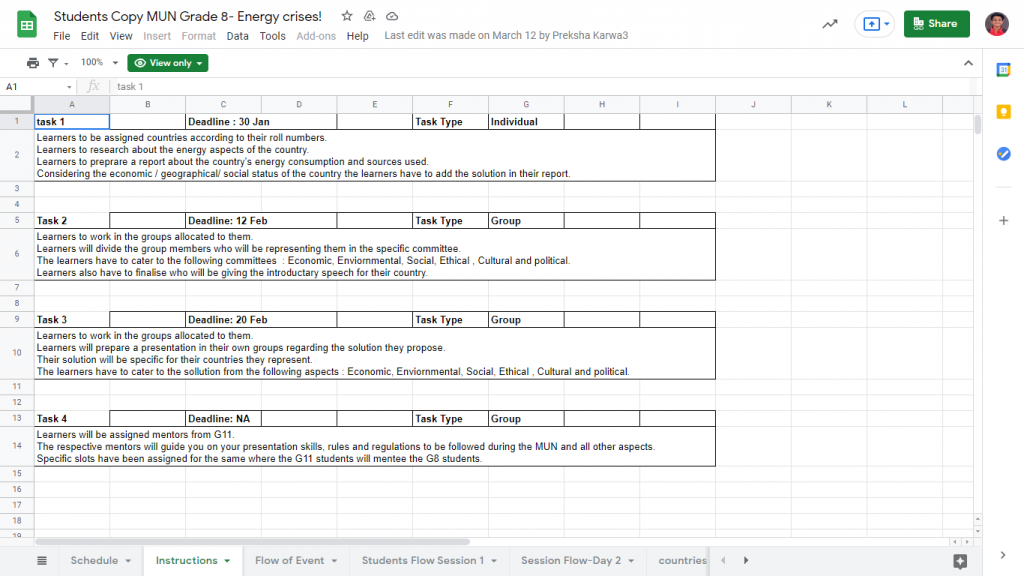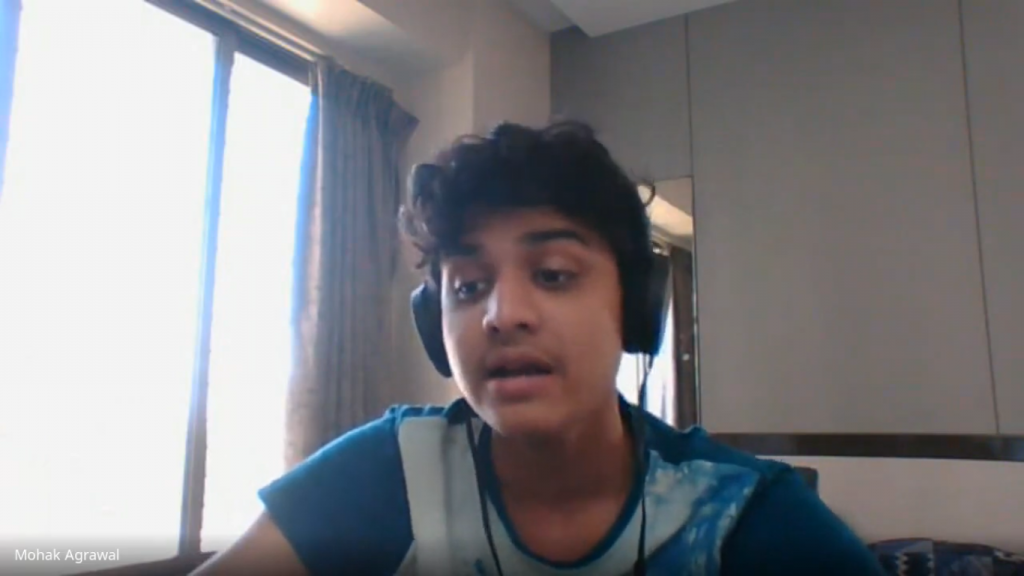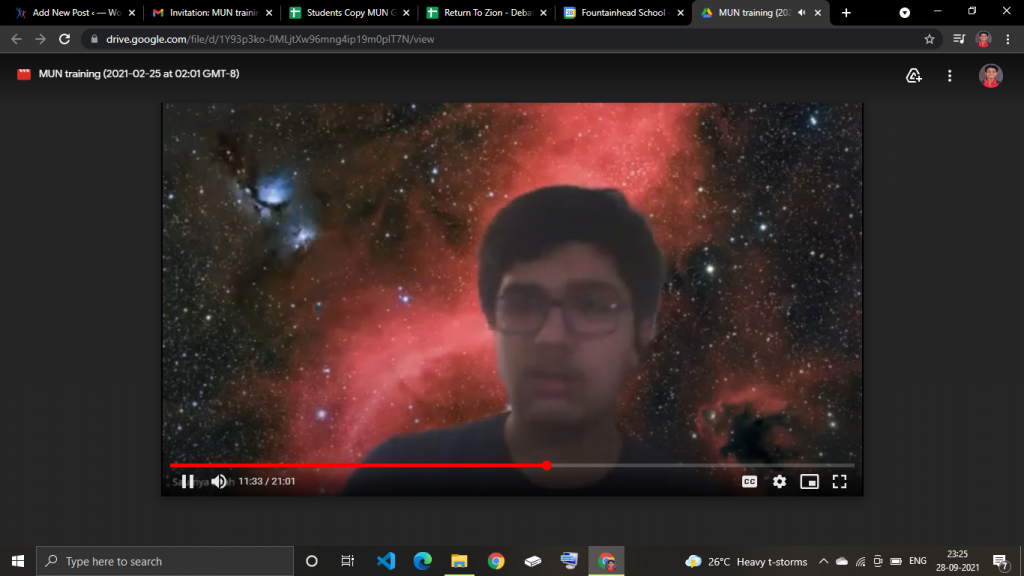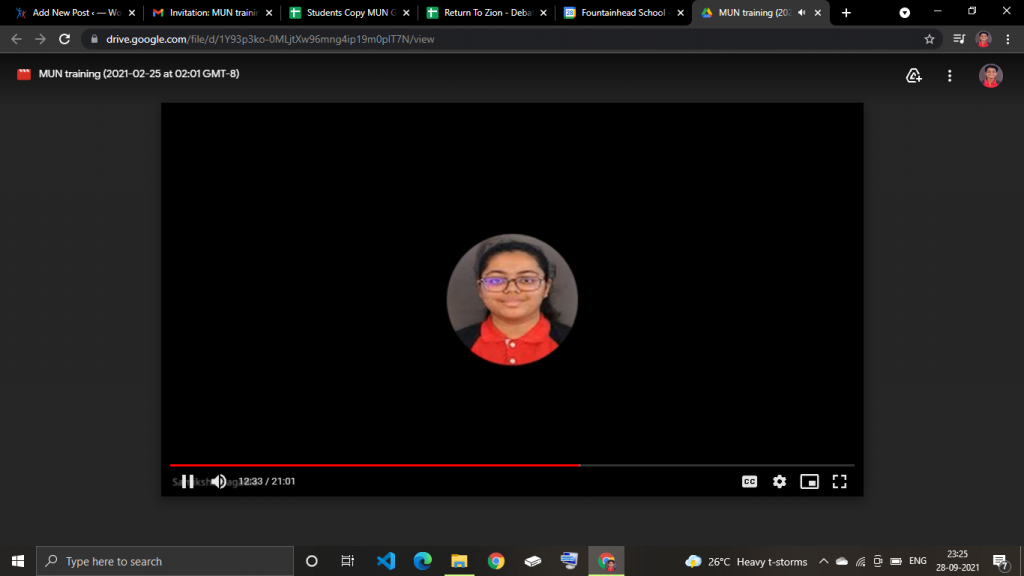As a fan of MUNs and a student of Global Politics HL, I took part in organizing a Model United Nations session for students of Grade 8. This was after Humanities teachers of Grade 8 approached few students (including me) to teach students about debates, and the workings of an MUN. After few meetings, we had a team ready with two people who have had experience in organizing MUNs, and three people with good debate skills and interest in politics. I volunteered to make a poster for the event, and decided on a title too:
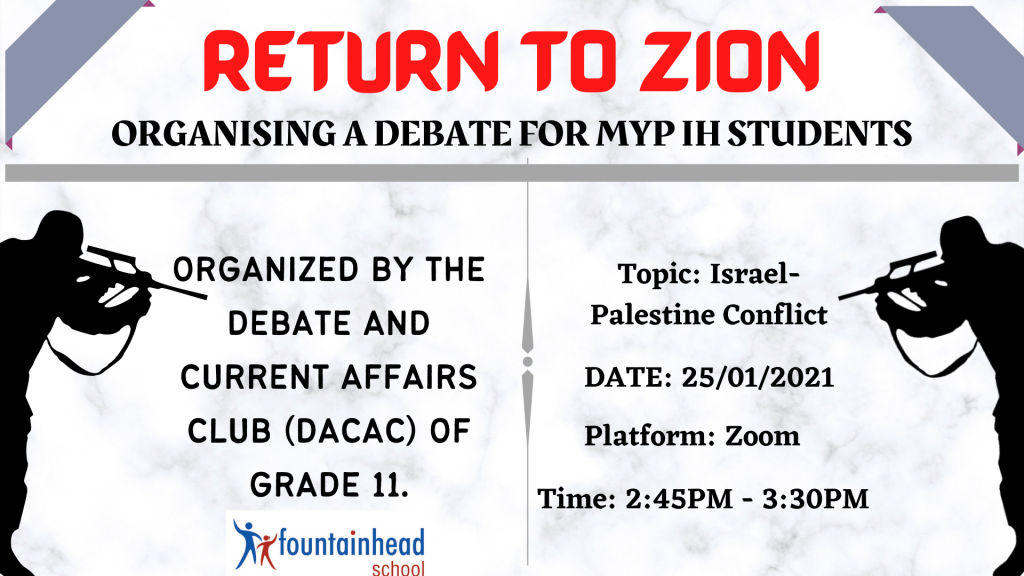
After this, we conducted the session, and formed our own rubric, which was as follows:
| Respect for the other team |
| Information |
| Rebuttal |
| Use of facts/statistics |
| Organization |
| Understanding of the topic |
| Presentation style |
Components of CAS catered:
Creativity: Planning the session involved a lot of creative-thinking skills, in order to make sure that students were enthusiastic and did participate. Additionally, I designed the poster and came up with the title of the session.
Service: The purpose of this session was to make sure that students understood about the basic conventions of debate and weren’t misguided by their pre-conceived notions.
Learning Outcomes:
- I could identify my strength in design and knowledge in politics, but have to work more on self-management.
- Challenges included getting every student to participate, dealing with numerous doubts, keeping up with our own schedules etc.
- We planned this CAS experience by organizing a workshop first, and the session next, in order to make sure that students understood what they were supposed to do. The evidence of same can be found below.
- We showed commitment by adhering to the deadlines. The sheet of the deadlines can be found below.
- The different benefits that collaboration offered were huge. Two of us handled MUN rules and regulations, while two of us used political knowledge to provide context.
- We taught the students about matters of global significance, and how they are formally dealt with in organizations like the UN.
